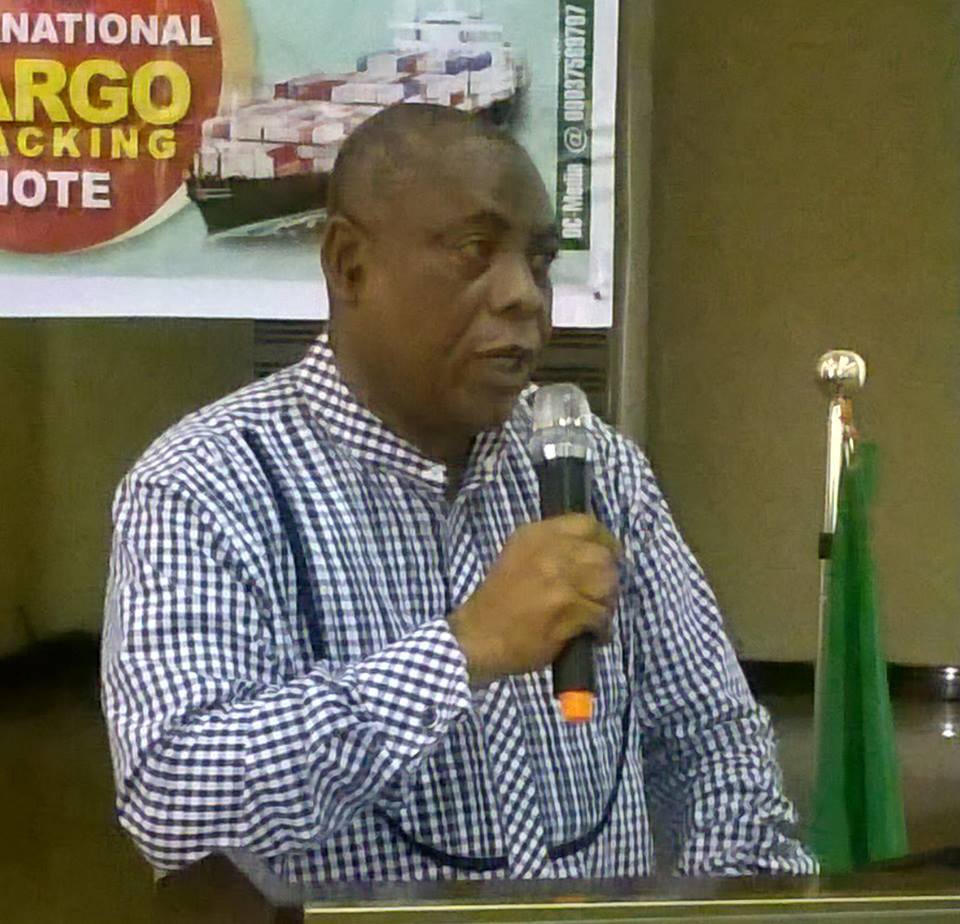The Shippers’ Association Lagos State (SALS) has said that refusal to export empty containers back to country of origin is a threat to Nigeria shipping trade. This is even as it claimed that there were over 65% of empty containers not fit for evacuation in Nigeria.
The President, SALS, Rev. Jonathan Nicol who made this assertion in a statement in Lagos on Saturday said that effort should be made to distinguish between occupied space for empty containers and occupied space for loaded containers adding that it was the responsibility of the terminal operators to receive empty containers on behalf of their principals – the shipping companies.
Nicol who maintained that the terminal operators were also responsible for the exports of the empty boxes fit for exports, however contended that “we have over 65% of empty containers not fit for evacuation in Nigeria.”
Stating that the reason for the inability of the terminal operators to export the empty containers maybe because most of the containers had outlived their usefulness and cannot be exported, he observed that some were leaking and not fit for storage.
According to him, “We are yet to have overflowing exports commodities to require so many empty containers. Our communities are littered with empty containers, making life difficult for the communities, breeding area boys and touts across our cities.
“Stakeholders are waiting anxiously for government’s firm and decisive action towards ridding our communities of empty containers, banishing unholy traffic gridlock. The Apapa traffic jam is a monster with four heads. The cause of the artificial port congestion cannot be over emphasized. The space left for imports are block stacked by containers. It is a threat to the ports to accommodate over 2,000 loaded containers by the ship side. The combined weight can cause a deluge. The terminal operators are responsible.
“When there are scanty spaces left due to deliberate refusal to evacuate their empty containers, the shipping lines introduce ‘congestion’ charges against the shippers. It is unfortunate and deliberate. Who created the congestion in the first place? Refusal to export empty Containers is a threat to Nigeria shipping trade.”
While pointing out that shippers and importers had severally been accused of abandoning their hard investments at the ports and causing lack of space for imports as they refuse to clear their goods, the SALS President stated that “we do not think this is correct.”
“If importers don’t clear their cargo, hold the Import Adjustments policies responsible; hold the terminal operators liable, hold all the government agencies and the Nigeria Customs Service liable for their huge clearing tariffs, which gives us the most expensive ports in the world”, he added.
On the landlord-tenant model of the Nigerian ports, Rev. Nicol noted that “it seems the landlord-tenant agreement has failed”, even as he insisted that the experiment had brought a compressed hardship on the traders.
“Should we jettison the landlord and tenant relationship and revert back to NPA original status as successful terminal operator? We are wiser now than 20 years ago. We have profound and well-grounded technocrats in the system that can make NPA serve the people. The current management of the Nigerian Ports Authority should be commended for their resolute stance in checkmating critical issues affecting the Authority.
“The Nigerian Ports Authority under whose jurisdiction the concession agreement is domiciled should rise up and clean the ports platforms of empty containers. We are groaning under a failed agreement which has given birth to private impunity and monopoly, organised corruption in the system. The purpose of the concession agreement is no longer useful. Now that the Minister of Transportation has initiated a joint synergy of agencies under his watch, we are very hopeful that beyond the empty containers issues, reduction of the cost of doing business in our ports should take priority.
“We advocate that if we must continue with the concessioners, the Nigerian Shippers’ Council, shippers and other major stakeholders should be involved in the re-structuring of any agreement affecting the ports and lives of Nigerians and further improve on revenue generation for the nation”, he said.
He therefore suggested, most strongly, that the Nigerian Shippers’ Council (NSC) as the Economic Regulator of the Nigerian ports, even though, it was handicapped by Court cases since 2014 on entirely economic issue, should be empowered to perform its duty without delay.
He continued, “Government should look into this and add port related litigations in the priority list for adjudication in the judiciary. It is even more urgent than the Election Tribunals receiving accelerated attention. It is economic and a source of financing government programs including elections. Some key Investors left the country because of delay. Shippers’ Council should be set free to conduct their shared responsibilities as port Economic Regulator. There is limit to endurance. Nigerian Shippers’ Council is now a major stakeholder in our port community.
He further added that “Peak periods are revered by the Shipping companies. They have more cargo across the globe. We have huge movement of cargo and this gives us a privilege position to ask for concession in rates and charges far below the normal freight. How else would the shipping lines compensate their trade partners?
“The peak period is within a short space of time. But in Nigeria, with the kind of system we operate, prices that go up don’t come down. In negotiating rates and charges, our volumes speak for us and should be our joker card for price slash. “
Photo: Shippers’ Association Lagos State President, Rev. Jonathan Nicol.
Send your news, press releases/articles to augustinenwadinamuo@yahoo.com. Also, follow us on Twitter @ptreporters and on Facebook on facebook.com/primetimereporters or call the editor on 07030661526, 08053908817.

